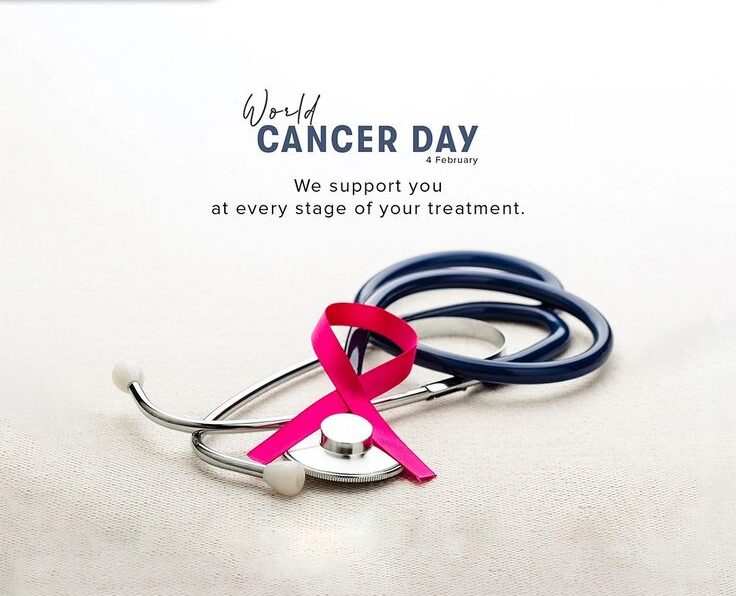7 Powerful Reasons Why World Cancer Day Matters to Society
World Cancer Day, observed annually on February 4, is a global event that brings attention to the importance of cancer awareness, prevention, and research. This day serves as a call to action for governments, healthcare professionals, organizations, and individuals to unite in the fight against cancer. With millions affected by cancer each year, World Cancer Day plays a crucial role in spreading knowledge, offering support, and empowering individuals to take proactive steps in preventing and managing cancer.
What is World Cancer Day?
World Cancer Day was established by the Union for International Cancer Control (UICC) in 2000 to promote awareness about cancer and to encourage efforts to reduce the global cancer burden. Its mission is to ensure that cancer is recognized as a critical global health issue that deserves attention, resources, and action. Every year, World Cancer Day is centered around a specific theme designed to emphasize various aspects of cancer prevention, treatment, and support.
History of World Cancer Day
- 2000: World Cancer Day was first observed as part of the UICC’s mission to address the rising global cancer burden. Since then, the day has grown into a major global event.
- 2005: The World Cancer Declaration was launched, which outlined commitments to reduce cancer incidence and mortality worldwide by improving awareness, prevention, diagnosis, treatment, and care.
- 2016-2020: The UICC’s campaign for World Cancer Day focused on a three-year initiative: “We can. I can.” The goal was to empower individuals and communities to take action in the fight against cancer.
- 2021-2030: The current World Cancer Day campaign focuses on creating a cancer-free world for all. It calls for urgent action to ensure equal access to quality cancer care for everyone, no matter where they live.
Daily Life Impacts of Cancer
Cancer affects millions of lives globally, not just those diagnosed with the disease but also their families, friends, and communities. Here’s how cancer impacts daily life:
- Physical Health: Cancer treatments such as surgery, chemotherapy, and radiation can have significant impacts on a person’s physical health, causing fatigue, pain, and other side effects.
- Emotional Well-being: A cancer diagnosis often leads to emotional challenges, including stress, anxiety, and depression. Individuals may struggle with fear of the future and uncertainty about treatment outcomes.
- Financial Strain: The cost of cancer treatment can be financially burdensome, especially for those without health insurance or access to affordable healthcare. Cancer care expenses can quickly drain personal savings and lead to economic hardship.
- Social Life: Cancer patients may find their social life disrupted as they focus on their treatment. There may be feelings of isolation or challenges in maintaining relationships due to time constraints or health limitations.
- Work-Life Balance: Balancing work and cancer treatment can be difficult. Many people undergoing treatment may have to take time off work, leading to financial and career concerns.
How is World Cancer Day Observed?
World Cancer Day is observed with a variety of events and initiatives aimed at raising awareness, providing support, and fostering a sense of solidarity. These events include:
- Public Awareness Campaigns: Governments, health organizations, and cancer advocacy groups organize public education campaigns to inform people about cancer prevention, symptoms, and early detection. These campaigns often use social media, television, and print media to reach a broad audience.
- Fundraising Events: Charitable organizations and cancer research institutes often hold fundraising events such as walks, runs, and auctions to raise money for cancer research and patient support programs.
- Educational Workshops: Hospitals, clinics, and cancer organizations offer workshops, seminars, and conferences focused on educating the public about cancer prevention, treatment options, and healthy lifestyle choices.
- Global Solidarity: On World Cancer Day, people around the world unite by wearing the official color of cancer awareness, a unified purple ribbon, to show their support for cancer patients and the ongoing fight against cancer.
- Cancer Survivor Stories: Many cancer survivors share their personal stories to inspire others and offer hope to those currently undergoing treatment. These stories are often shared on social media, in hospitals, and through charity events.
7 Key Facts About Cancer and Its Impact
- Global Prevalence: Cancer is one of the leading causes of death worldwide. According to the World Health Organization (WHO), nearly 10 million people die from cancer each year.
- Cancer Risk Factors: Lifestyle choices, such as smoking, excessive alcohol consumption, poor diet, lack of physical activity, and exposure to environmental toxins, contribute to the risk of developing cancer. Genetics also play a significant role.
- Early Detection Saves Lives: Early detection of cancer through regular screenings can significantly increase survival rates. For example, regular mammograms can help detect breast cancer early, while colonoscopies can catch colorectal cancer in its early stages.
- Cancer Treatment Advancements: Over the years, there have been significant advancements in cancer treatment, including precision medicine, immunotherapy, and targeted therapies, which offer patients more effective treatment options with fewer side effects.
- Cancer and Mental Health: The mental and emotional impact of cancer can be profound. Patients often experience fear, anxiety, and depression. Support systems, including counseling and peer support groups, are crucial for helping individuals cope with the psychological burden of cancer.
- Global Inequities in Cancer Care: In low- and middle-income countries, access to cancer treatment is limited, leading to lower survival rates. World Cancer Day emphasizes the need for equal access to high-quality cancer care for everyone, regardless of their economic status or geographic location.
- Cancer Prevention: While not all cancers are preventable, many lifestyle factors can reduce the risk of developing cancer. A healthy diet, regular physical activity, avoiding tobacco and excessive alcohol, and protecting oneself from excessive sun exposure are effective preventive measures.
FAQs About World Cancer Day
Q1: Why is World Cancer Day important?
A: World Cancer Day is vital because it brings attention to the global cancer burden, educates the public about prevention and early detection, and supports efforts to ensure equal access to cancer care and treatment worldwide.
Q2: How can I get involved in World Cancer Day?
A: You can participate in World Cancer Day by attending events, supporting cancer research organizations, sharing information on social media, or donating to cancer charities. You can also raise awareness by wearing the color purple, the official color for cancer awareness.
Q3: What are some common signs of cancer?
A: Common symptoms of cancer include unexplained weight loss, persistent cough, changes in skin appearance, unusual lumps or swelling, changes in bowel or bladder habits, and unexplained bleeding. It’s essential to consult a doctor if you notice any unusual changes.
Significance of World Cancer Day
- Global Awareness: World Cancer Day increases awareness about the prevalence of cancer and its global impact. It educates people about cancer prevention, early detection, and treatment, helping to reduce the stigma surrounding the disease.
- Encourages Action: By bringing people together, World Cancer Day motivates individuals, communities, and governments to take action in cancer prevention, research funding, and improving healthcare infrastructure.
- Fostering Support: World Cancer Day provides an opportunity to support cancer patients and survivors. It encourages people to share stories of hope and strength, offering a sense of solidarity to those facing cancer.
- Advocating for Change: World Cancer Day is a powerful reminder that we must continue to advocate for policies that ensure equal access to cancer treatment and care for all people, regardless of their socioeconomic status or location.
Wishing and Spreading the Message on World Cancer Day
- “On World Cancer Day, let’s unite in the fight against cancer and work towards a future where no one has to face this battle alone.”
- “To all the cancer fighters, survivors, and their families: you are strong, and your journey matters. Happy World Cancer Day!”
- “World Cancer Day is a reminder that together, we can make a difference. Let’s continue to raise awareness, support research, and fight for a world without cancer.”
Conclusion
World Cancer Day serves as an essential reminder of the global impact of cancer and the need for continued awareness, research, and support. It unites people across the world in their commitment to preventing cancer, improving treatment, and ensuring access to care for all. By participating in World Cancer Day, we contribute to a brighter future where cancer no longer poses a threat to millions of lives.










